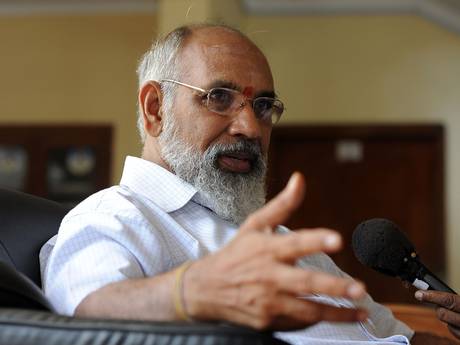 [Sunday 22 September 2013 ] Sri Lanka’s main ethnic Tamil party won a convincing victory in the country’s northern provincial elections, according to results released on Sunday, in what has been seen as a resounding call for wider regional autonomy in areas ravaged by a quarter-century of civil war. The Tamil National Alliance (TNA) will form the first functioning provincial government in the northern Tamil heartland after securing 30 out of 38 seats in Saturday’s elections, Sri Lanka’s elections commission said. President Mahinda Rajapaksa’s coalition won the rest of the seats. The win provides a platform for the TNA to campaign for an autonomous federal state, though the provincial council is largely a toothless body. The Tamils have fought unsuccessfully for self-rule for six decades, at first through a peaceful struggle and then the bloody civil war. The elections were seen by the international community as a test of reconciliation between the Tamils and the majority ethnic Sinhalese, who control Sri Lanka’s government and military.
[Sunday 22 September 2013 ] Sri Lanka’s main ethnic Tamil party won a convincing victory in the country’s northern provincial elections, according to results released on Sunday, in what has been seen as a resounding call for wider regional autonomy in areas ravaged by a quarter-century of civil war. The Tamil National Alliance (TNA) will form the first functioning provincial government in the northern Tamil heartland after securing 30 out of 38 seats in Saturday’s elections, Sri Lanka’s elections commission said. President Mahinda Rajapaksa’s coalition won the rest of the seats. The win provides a platform for the TNA to campaign for an autonomous federal state, though the provincial council is largely a toothless body. The Tamils have fought unsuccessfully for self-rule for six decades, at first through a peaceful struggle and then the bloody civil war. The elections were seen by the international community as a test of reconciliation between the Tamils and the majority ethnic Sinhalese, who control Sri Lanka’s government and military.
“We asked the people [for votes], and the people have given. Now it’s our turn to reciprocate,” said the chief minister-elect of Northern Province, the retired Supreme Court justice C V Wigneswaran. “The government has to learn from our victory,” he said. “The people have spoken democratically… The people have shown in no uncertain terms what their aspirations are. So I am sure the government will take stock of the matter and help us to make democracy work in the Northern Provincial Council.”
The campaigning period and election day were marked by sporadic attacks and threats against TNA supporters, including some allegedly by uniformed army soldiers.
The US embassy said in a statement that the involvement of uniformed individuals in election violence was “particularly alarming”, adding that a process free of violence and intimidation is needed to further post-war reconciliation.
The government has rejected international calls that it has not thoroughly investigated alleged war crimes committed by its troops at the end of the war, when, according to a UN report, they may have killed 40,000 Tamil civilians. The Tamil Tiger rebels have also been accused of widespread war crimes, including the forced recruiting of child soldiers.
AP
